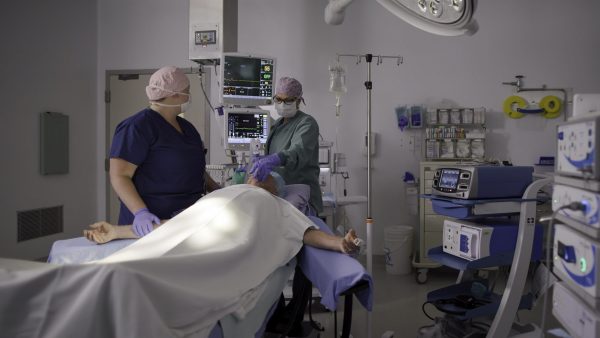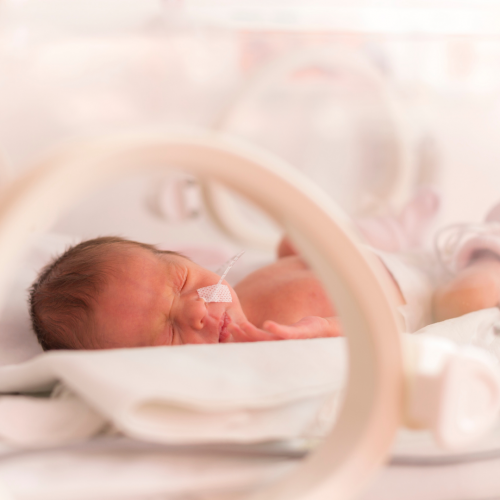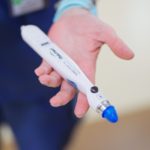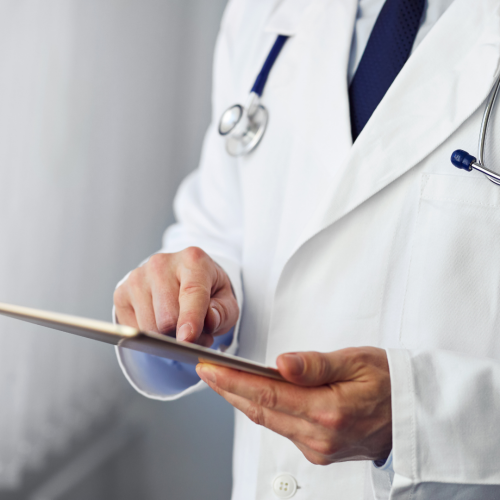Your Impact – 2021
Microdebrider

Chronic sinusitis is a very common problem affecting up to 30% of the population sometime during their lifetime. Endoscopic sinus surgery is used to help manage and sometimes cure chronic sinusitis. The microdebrider is the most commonly used powered instrument in endoscopic sinus surgeries for soft tissue and bone removal. It allows our surgeons to safely perform more thorough sinus surgery, and improves their efficiency resulting in an increased number of procedures being performed in a day.
Incubator Transport Stretcher
 The Incubator Transport Stretcher has made a positive impact to our smallest patients at GBGH. Approximately 3% of babies born at GBGH require a higher level of care at our partnering site Orillia Soldiers’ Memorial Hospital. With advanced hydraulics and ease of use, the transfer of the incubator from ground to ambulance is seamless, keeping these little ones secured and safe. The powered incubator stretcher provides stability and safety while reducing the risk of caregiver back strain and lost time due to injuries. The Innovative Powered System assists in loading and unloading a cot at the touch of a button.
The Incubator Transport Stretcher has made a positive impact to our smallest patients at GBGH. Approximately 3% of babies born at GBGH require a higher level of care at our partnering site Orillia Soldiers’ Memorial Hospital. With advanced hydraulics and ease of use, the transfer of the incubator from ground to ambulance is seamless, keeping these little ones secured and safe. The powered incubator stretcher provides stability and safety while reducing the risk of caregiver back strain and lost time due to injuries. The Innovative Powered System assists in loading and unloading a cot at the touch of a button.
Tonometers

Tonometry is a diagnostic test using a Tono-pen that is shaped like a large marker that measures the pressure inside your eye, which is called intraocular pressure (IOP). This measurement can help the physicians at GBGH determine whether or not you may be at risk of glaucoma and is an important piece of diagnostic equipment. Tonometry can also be used for trauma cases where high intraocular pressures occur and eye specialists are required for further treatment.
Meditech Expanse (CARE4)
 The implementation of a completely digital medical record system at GBGH is underway! With a target Go-Live date of September 2021. This new electronic software platform will allow us to eliminate countless paper based systems and processes and create a truly digital health care environment which will lead to multiple improvements and efficiencies across the entire hospital.
The implementation of a completely digital medical record system at GBGH is underway! With a target Go-Live date of September 2021. This new electronic software platform will allow us to eliminate countless paper based systems and processes and create a truly digital health care environment which will lead to multiple improvements and efficiencies across the entire hospital.

